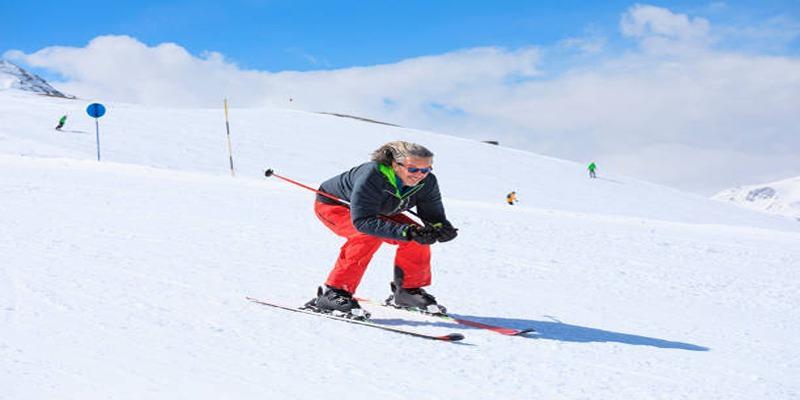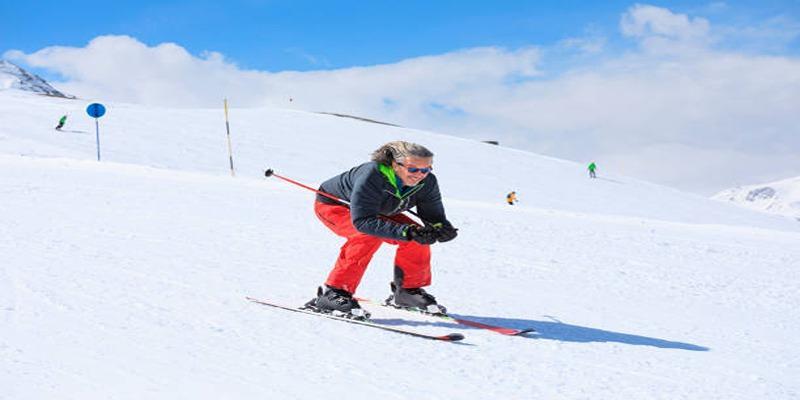Planning a ski vacation can be a fun but hectic experience. In this guide, we'll take you through step-by-step what you should know from selecting the proper destination and reserving lodging to preparing equipment and taking the slopes for a fantastic skiing experience.

When you are planning your skiing vacation, choosing the ideal destination is a vital first step. Your destination will depend on a number of different factors, such as your skiing ability, budget, and preferences for atmosphere and amenities. Below, we've listed some of the most important things to consider so you can choose the perfect skiing destination for your next holiday.
When selecting a ski resort, it is important to think about your experience on the slopes. Novice skiers might choose resorts that have plenty of gentle slopes, referred to as "green slopes," and proximity to ski schools to take lessons. Intermediate and expert skiers, on the other hand, might look for places with difficult terrain, steep slopes, and bigger ski areas. Ensure your destination has trails to suit all members of your group, so everyone can have fun and enjoy
The distance to your ski destination can significantly impact your overall trip experience. If you’re seeking a quick getaway, look for a resort within a few hours’ drive or featuring convenient transportation options like direct flights. For those planning a longer trip, international ski destinations might offer a broader range of experiences. Be sure to consider the time needed to get to the slopes and the associated travel costs when selecting your destination.
Beyond the slopes, the après-ski scene can play a vital role in your destination choice. Some resorts boast a lively atmosphere with vibrant life and cultural events, while others provide a quieter ambiance with cozy lodges and spa facilities. Understand what type of activities and amenities you value most after skiing, and prioritize a destination that aligns with your preferences and enhances your overall vacation experience.
Planning the budget for your ski trip is essential to ensure a stress-free experience. By carefully considering all potential costs, you can make informed decisions that align with your financial comfort.
Start by researching the costs of traveling to your chosen destination, including flights, car rentals, or gas. Accommodation expenses can vary widely depending on location and style, from luxury resorts to budget-friendly lodges. Additionally, lift passes can be a significant part of your budget, so be sure to check prices in advance and consider multi-day or season pass options for added savings.
Beyond the basics, include extra costs such as dining, equipment rentals, and ski lessons in your budget. Other potential expenses might include transportation within the resort, like shuttle services, or fees for attractions such as guided tours. Keeping a buffer for unexpected costs ensures you won’t be caught off guard during your trip.
Many resorts and travel operators offer bundled packages that combine accommodation, lift passes, and even lessons, often at a reduced rate. Look for early-bird discounts or off-peak deals to save further. Checking online platforms and booking in advance can help secure the best prices, making your trip both enjoyable and budget-friendly.
When booking accommodations for your trip, consider factors such as proximity to the slopes, amenities, and overall budget. Staying closer to the ski area might cost more but can save time and transportation expenses. Look for lodges or rentals that offer complimentary features like breakfast, shuttle services, or ski storage, as these can enhance your convenience and overall experience.
If traveling with a group, renting a cabin or a larger condo can often be more cost-effective than individual hotel rooms. Additionally, explore options like vacation rental websites for unique stays or last-minute deals. Always read reviews and compare options to ensure the accommodations meet your needs while staying within your budget.
Planning the travel logistics for your trip is essential to ensure a smooth and enjoyable experience. Once your accommodations are booked, it's time to focus on other vital aspects such as transportation, packing, and preparing for local experiences. Below are some tips to help you efficiently organize these details.
Consider the distance you need to travel and your budget before choosing a mode of transportation. For long journeys, flights may be the fastest option, though trains or buses can provide scenic experiences. If traveling locally, renting a car is great for flexibility, but ensure to check fuel costs, parking options, and insurance coverage. Always book tickets or rentals well in advance to secure the best rates.
Effective packing can save you a lot of hassle during your travels. Start with a checklist of necessary items based on your destination's climate and planned activities. Invest in durable luggage that’s easy to carry. Remember to pack versatile clothing, toiletries, a first-aid kit, and travel documents. If flying, be mindful of airline baggage policies to avoid extra fees. Packing light ensures you have room for souvenirs while limiting the weight of your bags.
Exploring the local culture can make your trip truly memorable. Research places to visit, local customs, and popular eateries in advance. Some attractions may require prior bookings, so plan accordingly. Learning basic phrases in the local language can help you connect with residents. Most importantly, remain open to unexpected discoveries, as these spontaneous moments often become the highlight of your travels.

Having the right gear and equipment is essential for a smooth and enjoyable trip. Start by considering the nature of your travel, whether it involves hiking, sightseeing, or urban exploration, and pack accordingly. For outdoor adventures, invest in durable backpacks, weather-appropriate clothing, and comfortable footwear. If electronics are part of your gear, such as cameras or chargers, ensure you have the necessary adapters for your destination.
Don't forget essentials like a first aid kit, reusable water bottle, and a power bank. Test any new gear before your trip to avoid surprises. A well-prepared set of equipment not only enhances your experience but also ensures you're ready for potential challenges along the way.
Skiing and snowboarding may be the main draws of a winter trip, but it’s smart to plan other activities too. Taking breaks from the slopes lets you enjoy more of your destination.
Popular options include snowshoeing, ice skating, sledding, and sleigh rides—fun ways to explore the snowy landscape. Many ski resorts also offer spas, hot springs, or indoor water parks for relaxation and entertainment.
Planning the perfect ski trip involves thoughtful preparation, from choosing the right destination and budgeting to packing gear and exploring beyond the slopes. With smart planning and attention to detail, you can enjoy a seamless and memorable winter adventure that balances fun, relaxation, and breathtaking alpine experiences.
 TOP
TOP
If you still believe that women don’t get heart diseases or that only older people can have heart diseases, you are wrong
 TOP
TOP
How building wealth is possible at any age with practical strategies that focus on consistent habits, smart choices, and long-term thinking
 TOP
TOP
Start making the most of your 401(k) today and secure a stronger financial future. Learn how timing, employer matches, and smart contributions can improve your retirement
 TOP
TOP
How financial aid for college works—from grants and scholarships to loans and work-study programs. Get clear, practical guidance for every funding option
 TOP
TOP
Discover 5 unique horse races that take place around the world, blending speed, thrill, and stunning cultural locations.
 TOP
TOP
Discover how Easter is celebrated across countries, from egg rolling to water fights, offering joy through local traditions.
 TOP
TOP
Explore North Wales’ most breathtaking gardens, from serene floral paths to hillside greenery with sea views.
 TOP
TOP
Wondering if it’s the right time for a loan? Learn how rates, timing, and your finances impact the decision.
 TOP
TOP
Discover the top reasons to pay credit card bills on time and how it safeguards your credit, money, and peace of mind.
 TOP
TOP
Uncover the best experiences in Rome, Italy, with this essential guide. Walk through ancient ruins, explore piazzas, visit historic churches, and get to know the Eternal City at your own pace
 TOP
TOP
Discover the best places to stay in Nashville, from lively downtown hotels to charming neighborhood rentals. Explore top areas suited for music lovers, families, and anyone seeking the perfect Nashville experience
 TOP
TOP
Thinking about a lease buyout? Learn how to evaluate your options, compare costs, and decide whether keeping your vehicle is the right move. Understand the financial side before making your next step